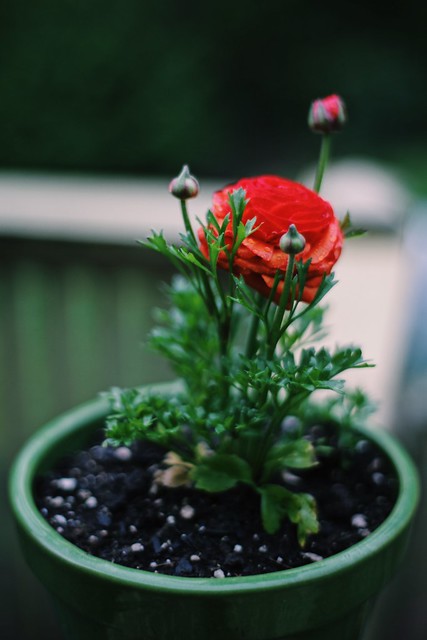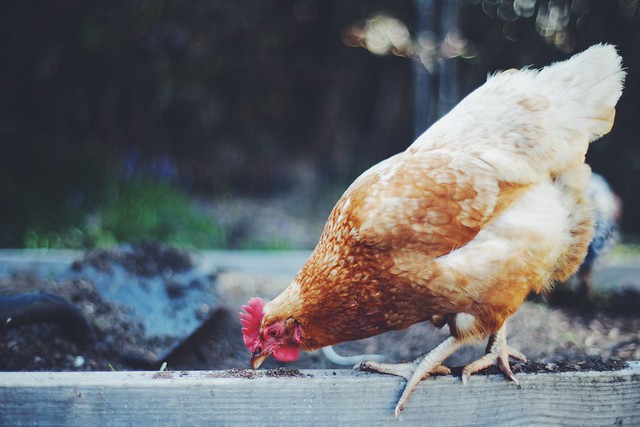Encouraging research.
Posts from March 2020
Deck Life
"The third scenario is that the world plays a protracted game of whack-a-mole with the virus, stamping out outbreaks here and there until a vaccine can be produced. This is the best option, but also the longest and most complicated."If you haven’t read this one yet it’s worth your time. The Atlantic has consistently had the best reporting and thinking about this from the beginning.
“This is a really dire situation statewide and I was really impressed by how OSU responded,” said Mike Bamberger, Oregon State University’s emergency preparedness manager. “We gathered everything from a single box of gloves to a pallet of them. University programs really stepped up at a time of great need.”Happy to see Oregon State contributing resources like this!
"Illustrators and designers know the power of good design to communicate a message or a feeling or an idea," Morris explained. Right now everything is changing so fast, and there is so much uncertainty and so much information flying around, I think everyone is really hungry for clarity and understanding.I've seen these illustrations all over social media but it didn't register they were by the same team: cartoonist Toby Morris and microbiologist Siouxsie Wiles. These are great!
"Our primitive mind knows something bad is happening, but you can’t see it. This breaks our sense of safety. We’re feeling that loss of safety. I don’t think we’ve collectively lost our sense of general safety like this. Individually or as smaller groups, people have felt this. But all together, this is new. We are grieving on a micro and a macro level."This message about grief was good to hear and something I need to keep in mind.
Gina Trapani and the crew at Postlight are sharing their experience as they transition to working from home and find ways to be productive in our new world:
"Getting and giving tech support is one of the most helpful things technologists can do during hard times. Right now everyone feels a little powerless, but great software empowers people. When times are tough, the Settings area of the best apps give people a little bit more control of their world."Their podcast had a great 20 minute episode about working from home recently too.
“But bringing the economy back ... that’s more of a reversible thing than bringing people back to life. So we’re going to take the pain in the economic dimension — huge pain — in order to minimize the pain in the diseases-and-death dimension.”This is the sane way to look at our current situation.
Google Doc with some helpful suggestions for getting through sheltering in place:
"Our brains have a bias toward negativity in order to scan for danger and keep ourselves safe. If we don’t want to become depressed and anxious, we have to make an effort to move toward the positive. If you think of everything that can possibly go wrong all of the time, you will have given your brain the experience of bad things happening even if none of your fears come true. Use this as an opportunity to catch your negative thoughts and identify them as old mental habits rather than as truths."I found this helpful.
Chicken on a garden bed
I’ve been wondering if I should get takeout or not so I really appreciate this guide that Serious Eats put together:
Are we sure food isn’t a vector of COVID-19 transmission?They have many disclaimers because there’s a lot we don’t know, but they’re showing their reasoning and sources here.
No, we don't know for sure. However, there is strong evidence to suggest that food is not a vector. The epidemiology of food-borne pathogens is well studied, with government data going back to 1938. The spread pattern of COVID-19 does not fit models of foodborne outbreaks, which are defined as two or more people getting sick from the same contaminated food or drink.
"By slowing it down or flattening it, we're not going to decrease the total number of cases, we're going to postpone many cases, until we get a vaccine—which we will, because there's nothing in the virology that makes me frightened that we won’t get a vaccine in 12 to 18 months. Eventually, we will get to the epidemiologist gold ring."I also want to believe that we'll find a vaccine.
"We can create a third path. We can decide to meet this challenge head-on. It is absolutely within our capacity to do so. We could develop tests that are fast, reliable, and ubiquitous. If we screen everyone, and do so regularly, we can let most people return to a more normal life. We can reopen schools and places where people gather. If we can be assured that the people who congregate aren’t infectious, they can socialize."Can we build up this kind of testing infrastructure in the next few months? I want to believe but we're struggling to find masks right now.
"According to Keogh, the speed at which this project went from idea to being tested by health authorities highlights the power of open-source as a way to solve hardware problems. “It doesn't matter where you are, it doesn’t matter what your skillset is, what time zone you're in, if you can contribute in a group to these large scale projects, you can have very high-impact results in a very short amount of time,” he says."I feel like we should all be working on things like this right now.
"This might seem premature, considering how recently the virus became known to science; is not drug development notoriously slow? But the reasonably well-understood basic biology of the virus makes it possible to work out which existing drugs have some chance of success, and that provides the basis for at least a little hope."How the virus works and how existing drugs might help.
"I mean, people always say, well, the flu does this, the flu does that," Fauci said Wednesday during congressional testimony. "The flu has a mortality of 0.1%. This has a mortality rate of 10 times that. That’s the reason I want to emphasize we have to stay ahead of the game in preventing this."I’m still seeing the flu comparison quite a bit online. I think that early link in people’s minds was a big setback.
Home Food
“Schools are experiencing critical shortages in staff, and superintendents are concerned for school personnel who are at elevated risk such as those over age 60 and those with underlying medical issues.”
"The Oregon Health Authority had recommended against closing campuses where cases of COVID-19 are not present. But Oregon has conducted limited testing for the virus, creating a misleading picture of the virus’s community spread. Not everyone who has wanted to be tested has been."The right call.
Making the case for social distancing:
"This is an exponential threat. Every day counts. When you’re delaying by a single day a decision, you’re not contributing to a few cases maybe. There are probably hundreds or thousands of cases in your community already. Every day that there isn’t social distancing, these cases grow exponentially."It is a difficult time to be a leader of any community right now, but acting quickly on social distancing will save lives by distributing the load on the medical system over time. That’s a hard argument to make when you see zero cases in your community at this moment but we will look back and be thankful to those leaders who did.
Data scientists look at the numbers:
As we’ve discussed, this math isn’t a certainty—China has already shown that it’s possible to reduce the spread by taking extreme steps. Another great example of a successful response is Vietnam, where, amongst other things, a nationwide advertising campaign (including a catchy song!) quickly mobilized community response and ensured that people adjusted their behavior appropriately.As summarized in tweet form: "By the time the impact in your community is clearly visible, you've missed your best opportunity."
Oregon is between two known outbreak locations but can’t determine if it also has an outbreak:
"The state lab had just 130 tests remaining as of Monday night, according to an agency spokesman. That translates to about 65 people, given that it takes about two tests per person to diagnose the disease."In the absence of accurate information I think state officials should assume the worst to protect people. Currently they’re using lack of known cases to justify their decisions.
This is a fascinating interview with World Health Organization's Dr. Aylward who recently visited China. He's optimistic about replicating their rapid response:
"China’s counterattack can be replicated, Dr. Aylward said, but it will require speed, money, imagination and political courage."His take on whether or not to close schools:
Does that imply that closing schools is pointless?And on the cultural difference between the US and China:
No. That’s still a question mark. If a disease is dangerous, and you see clusters, you have to close schools. We know that causes problems, because as soon as you send kids home, half your work force has to stay home to take care of them. But you don’t take chances with children.
Isn’t all of this impossible in America?I've been reading all the Coronavirus things and this felt like hearing from someone who has seen the future.
Look, journalists are always saying: “Well, we can’t do this in our country.” There has to be a shift in mind-set to rapid response thinking. Are you just going to throw up your hands? There’s a real moral hazard in that, a judgment call on what you think of your vulnerable populations.
Ask yourself: Can you do the easy stuff? Can you isolate 100 patients? Can you trace 1,000 contacts? If you don’t, this will roar through a community.
Oregon students will not be staying home:
Oregon Department of Education Director Colt Gill: “Keeping schools open is the best option for our state and, most importantly, for our students. Our safety efforts should focus on practicing good hygiene, staying home when we are not feeling well, and cleaning surfaces in our schools. We can all play a part with these simple steps to protect ourselves and our friends, classmates and community.”It sounds like the justification is that there are no existing cases. We also have a very low testing capacity in Oregon right now, so.
Preparing for the worst:
In particular, the slide points out that hospitals should prepare for an impact to the system that's 10 times a severe flu season.Strain on the health system is why we should do everything we can to flatten this curve by slowing transmission.
"The University of Washington said it would move to online classes for its 50,000 students. With colleges nationwide about to empty for spring break, students fear they might not be coming back."They’re planning to open their campus again March 30th.
This is a difficult article to read because it’s about a massive failure, but it’s important to face the truth of where we are. This was especially surprising:
"Oregon, situated between the California and Washington hotspots, can test only about 40 people a day."We have some catching up to do:
"Today, more than a week after the country’s first case of community transmission, the most significant finding about the coronavirus’s spread in the United States has come from an independent genetic study, not from field data collected by the government. And no state or city has banned large gatherings or implemented the type of aggressive “social distancing” policies employed to battle the virus in Italy, Hong Kong, and other affluent places."
Time to quickly learn from the past.
"That is why, in my view, the most important lesson from 1918 is to tell the truth. Though that idea is incorporated into every preparedness plan I know of, its actual implementation will depend on the character and leadership of the people in charge when a crisis erupts."This article from 2017 is a sobering read.
"Seattle is effectively in the position that Wuhan was on Jan. 1, when it first recognized it had an outbreak of a new virus, but did not realize the scale of the problem or the speed at which the virus was spreading, Bedford said."The lack of testing has really put us at a disadvantage.
Best summary I’ve read of the Twitter activist investor threat.
"But business ain’t beanbag, and “good enough” clearly isn’t cutting it for Paul Singer. Unless something changes dramatically, it would appear that Jack Dorsey is in for the fight of his life."After bending over backward to not enforce Twitter policy for politicians, this is the thanks Jack gets?
This is a helpful look at how tech companies are responding to covid-19 through changes in policy and events. Great to see this leadership.
38 albums of soundtracks are now widely available to stream.Hooray for more beautiful Studio Ghibli creations more widely available!
Is this a victory for Google?
"Just last year, the Court held that 'merely hosting speech by others is not a traditional, exclusive public function and does not alone transform private entities into state actors subject to First Amendment constraints,'" writes McKeown.This ruling confirms again that the big platforms are private companies, not part of the government. The idea of First Amendment rights do not apply at YouTube, Facebook, etc. This is confusing for many people and the platforms themselves benefit from this confusion and deepen it with their marketing language. This case touched on that:
"YouTube’s braggadocio about its commitment to free speech constitutes opinions that are not subject to the Lanham Act," writes McKeown. "Lofty but vague statements like 'everyone deserves to have a voice, and that the world is a better place when we listen, share and build community through our stories' ... are classic, non-actionable opinions or puffery."When platforms host garbage they often use the idea of free speech as a shield from criticism. This ruling weakens that shield.


